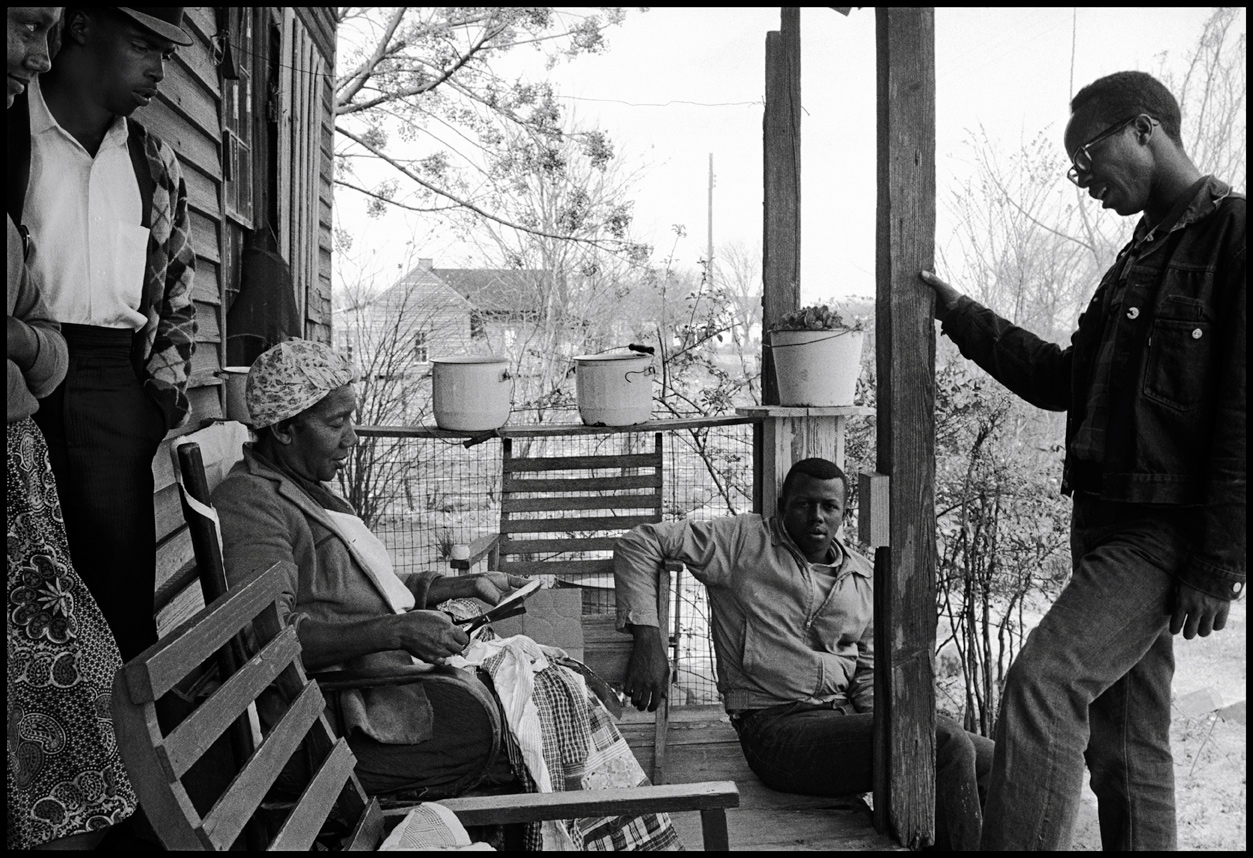Larry Rubin and Faith Holsaert were two of the white volunteers who came to Southwest Georgia in 1962 to join SNCC’s expanding voter registration project there. Growing up in Philadelphia, Rubin was raised with the knowledge that “it was part of our Jewishness to fight for justice, fight for freedom.” His parents were active in the progressive movement, and as a five-year-old, his job was to answer the door when the FBI agents came knocking and tell them that his parents weren’t home.
Faith Holsaert also attributed part of the reason she decided to go South to her Jewish roots. She grew up in Greenwich Village in an interracial family with two mothers and attended school at the well-known progressive Little Red School.
In the summer of 1962, SNCC field secretaries, volunteers, and local people went door-to-door in Terrell and Lee Counties encouraging people to vote. As Rubin remembered, “I was fighting for freedom, but the tasks were making sure Mrs. Jones had a car to get to the mass meeting, walking door-to-door canvassing, they were little tasks.”
There were no great things to do. It was little things, one after the other.

Charles Sherrod and Randy Battle visit a supporter in the Georgia countryside, 1963, Danny Lyon, Memories of the Southern Civil Rights Movement 114-115, Bleakbeauty.com
The use of white volunteers in Southwest Georgia was by no means typical in other SNCC projects, and it was a decision that originated with SNCC’s project director Charles Sherrod.
Shirley Sherrod “White Volunteers as Protection”
Choosing to involve young white people in urging Black residents to vote, however, wasn’t without consequences. Charles Sherrod developed ways of operating and strict rules that black and white staffers were expected to follow.
Larry Rubin “Whites Didn’t Have To Be in Charge”
Faith Holsaert “Charlie Sherrod’s Anti-Lynch Law”
White and Black SNCC workers canvassing and working together helped break down the idea that whites were superior. Sherrod’s willingness to work with anyone willing put to their body on the line for the movement set SNCC’s work in Georgia apart, and much was learned by white students and Black Georgians alike.

Ralph Allen taking an affidavit from Carolyn Daniels in Terrell County, Georgia, August 1962, Danny Lyon, Memories of the Southern Civil Rights Movement 34, Bleakbeauty.com
Annette Jones “You Don’t Go Out to Mama Dolly’s in a Bermuda Shorts Set”
Larry Rubin “I’ll Go To the Synagogue & I’ll Get Them Involved”
Sherrod deeply believed in the human capacity for love and for change. – Faith Holsaert




